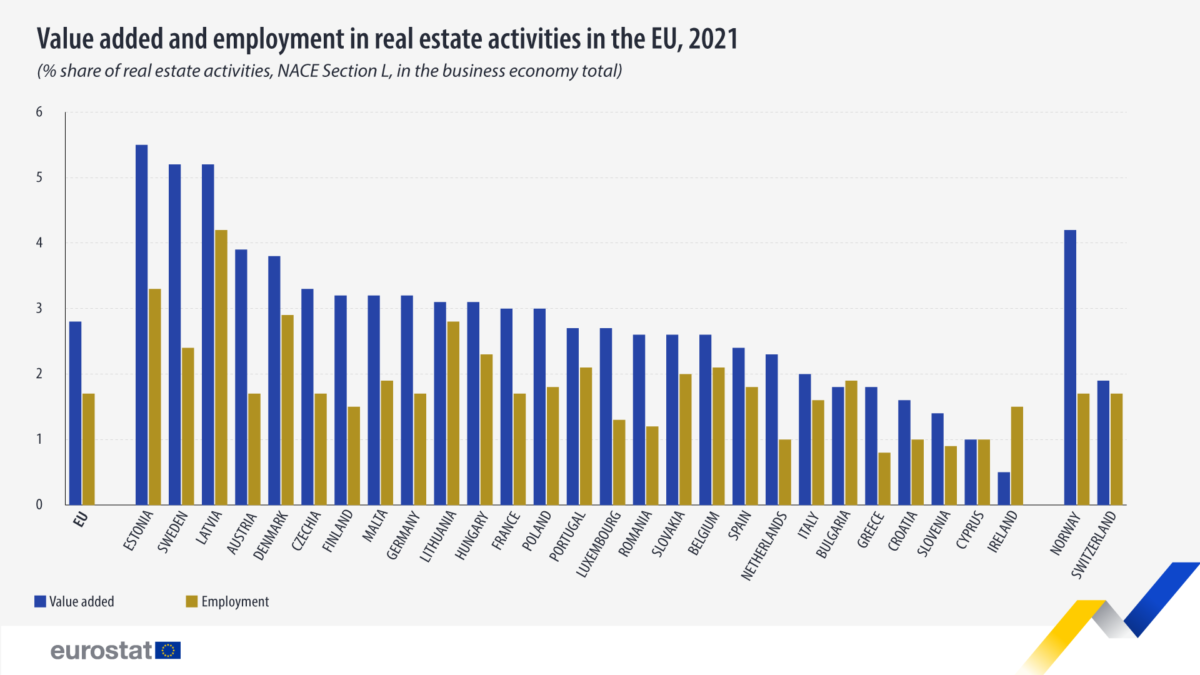Malta’s real estate sector contributes a bigger share to the country’s value added than is the case across the European Union – but not by much.
New statistics released by Eurostat show that the real estate sector generated 3.2 per cent of Malta’s value added from the business economy.
This is the eighth highest share in the EU, and above the 2.8 per cent of value added that real estate creates in the bloc’s business economy.

Among EU countries, the highest contribution of this sector to the value added of the business economy total in 2021 was recorded in Estonia (5.5 per cent), followed by Sweden and Latvia (both at 5.2 per cent), Austria (3.9 per cent) and Denmark (3.8 per cent).
Conversely, the lowest contributions were observed in Ireland (0.5 per cent), Cyprus (one per cent), Slovenia (1.4 per cent), Croatia (1.6 per cent) and Greece (1.8 per cent).
In 2021, 1.5 million enterprises in the EU had their core business in the real estate sector, representing 4.8 per cent of all active enterprises in the EU’s business economy. This marked an 11 per cent increase from 2020 (1.3 million enterprises).
In 2021, the real estate sector employed 2.7 million people, representing 1.7 per cent of total employment in the business economy.
Regarding employment, Latvia reported the highest share (4.2 per cent), followed by Estonia (3.3 per cent), Denmark (2.9 per cent), Lithuania (2.8 per cent) and Sweden (2.4 per cent).
The lowest shares of employment in the real estate sector within the business economy total were recorded in Greece (0.8 per cent), Slovenia (0.9 per cent), Croatia, the Netherlands and Cyprus (all at one per cent).
In Malta, the sector represented around 1.9 per cent of the total employment in the business economy.
This sector contributed €267.5 billion in value added, accounting for 2.8 per cent of value added created by the EU’s business economy.
Furthermore, the sector reported a net turnover of €521.5 billion in 2021.
Malta’s cruise passenger traffic grows by 4.6% in Q4 2024
Over the course of 2024, Malta welcomed a total of 849,088 cruise passengers
MIBA overall winner Magro Brothers aims for top-tier status in European table sauce production
The Gozo-based company, winner of TradeMalta’s MIBA 2024; announced an ambitious investment, for further internationalisation
‘A positive development’ – The Malta Chamber welcomes Labour Migration Policy
It believes that the policy must be aligned and integrated into Malta Vision 2050 to ensure a long-term strategy





